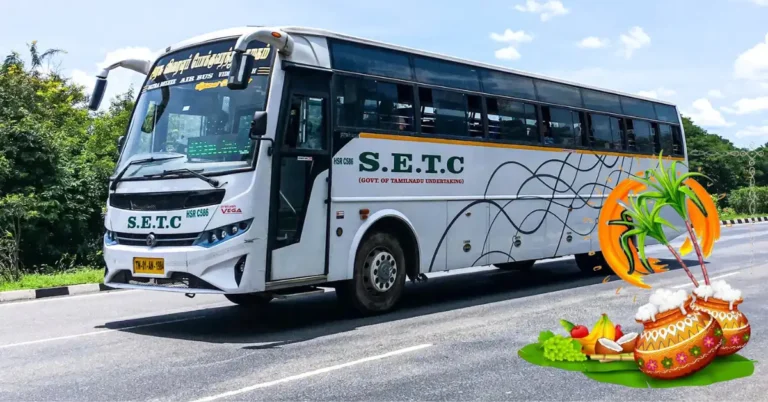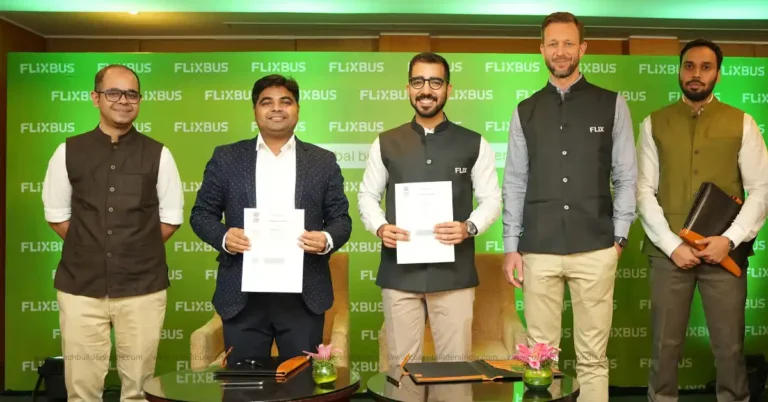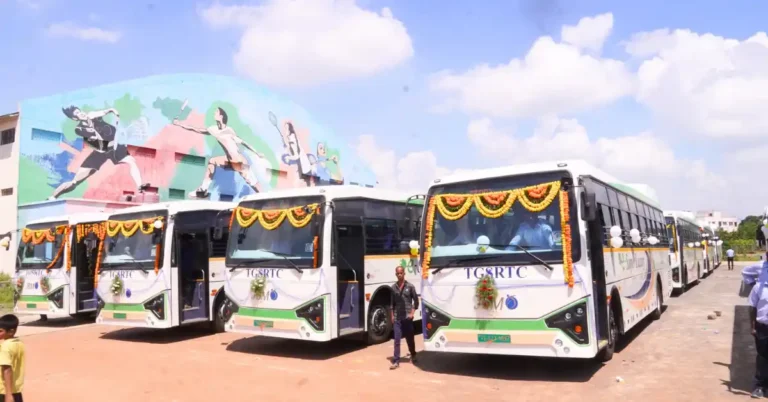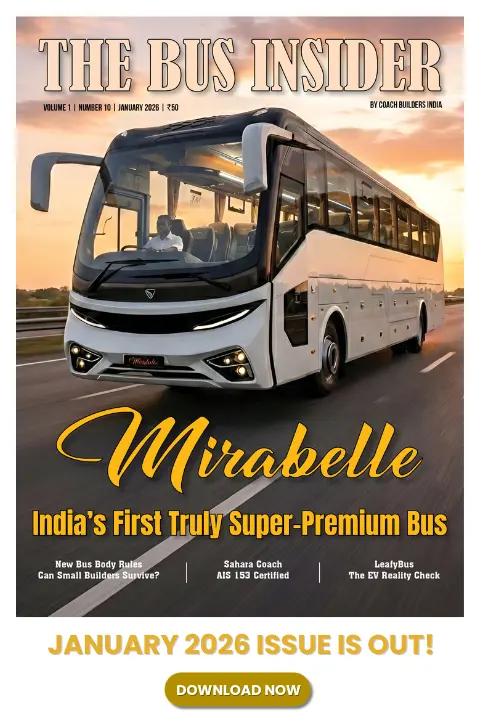We Will Soon Have 132-Seater Trolley Buses in India, Says Nitin Gadkari
Union Minister Nitin Gadkari has revealed the Government’s plan to launch Trolley buses in India soon. He mentioned that a pilot project is currently underway in Nagpur, featuring a 132-seater zero-emission trolley bus with airplane-style seating and a “bus hostess”.

The Indian government is developing a trolley bus project to tackle air pollution and enhance affordable public transport. Union minister Nitin Gadkari revealed during the NDTV Infrashakti Awards conversation on Tuesday that the government is working on a pilot trolley bus project in Nagpur in collaboration with Tata Motors.
This project entails a 132-seater electric trolley bus powered by overhead wires, designed with flight-like seating, onboard food services, and staffed by “bus hostesses”.
According to him, the bus will feature significantly lower operational costs compared to conventional buses, along with rapid charging capabilities.
“We are conducting a pilot project in Nagpur with Tata Motors. Our trolley bus will accommodate 132 passengers, travel 49 km along the ring road, and recharge at stops after 40 km, taking just 40 seconds to charge for the next 40 km. The operational cost is estimated at ₹35-40 per km,” he explained.
Also Read: List of Made in India Hydrogen Buses Empowering Sustainable Mobility
Gadkari further emphasized that the buses will be fully air-conditioned, equipped with comfortable chairs and space for laptops in front of each seat. He also proposed the idea of having bus hostesses similar to air hostesses, who will offer fruits, packed food, and beverages to passengers.
“My calculation suggests that this bus will cost 30% less to operate compared to a diesel bus. Additionally, if powered by solar energy, the operational costs could further decrease,” he added.
Gadkari highlighted another government priority – reducing the cost of public transportation.
He pointed out that while a diesel bus costs ₹115 per kilometer to operate, air-conditioned electric buses run at ₹41 and non-air-conditioned ones at ₹37 with subsidies. He mentioned that without subsidies, these costs would range between ₹50 and ₹60 per kilometer. This reduction is expected to lower ticket prices by 15-20%.
Also Read: Best Electric Bus Manufacturers in India in 2024
Nitin Gadkari Takes Test Ride of Trolley Bus in Czech Republic
In October 2023, the Indian Minister for Road Transport and Highways attended the ministerial session on Road Safety at the 27th World Road Congress in Prague.
During the event, he took a test ride in a 24-meter-long articulated electric trolley bus manufactured by Skoda. Taking to X, he highlighted how these buses could serve as a cost-effective alternative to highly capital-intensive metro systems and shared his plans to implement similar trolley buses in India.
Took a test ride in a 24m long World's Longest Overhead Power Electric Trolley Bus, developed by Skoda in Prague, Czech Republic. The bus is currently under experimentation. #ElectricTrolleyBus @IndianDiplomacy @MEAIndia @IndiainCzechia pic.twitter.com/8FMKPfvRlu
— Nitin Gadkari (@nitin_gadkari) October 3, 2023
What is a Trolley Bus?
A trolley bus is an electric bus that runs on roads using electricity from overhead wires. It has rubber tires like a regular bus but gets power from cables, called trolley poles or wires, above the road.
These wires supply electricity to the bus through special equipment on its roof. Trolley buses are quieter and produce no exhaust because they don’t burn fuel like diesel or gasoline.
They’re often used in cities for public transport, providing a cleaner and quieter alternative to traditional buses while reducing air pollution and reliance on fossil fuels.
Also Read: Trolleybuses in India: The Skoda Electric Trolleybuses of Bombay
History of Trolley Buses in India
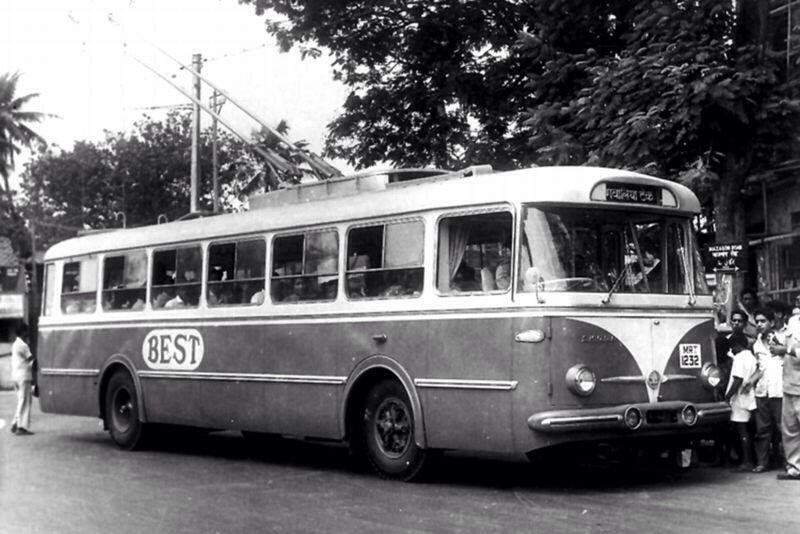
In the past, India had trolley bus systems in both Delhi and Mumbai during the 1960s and 1970s.
Mumbai, then Bombay, operated 12 Skoda 9Tr trolleybuses primarily on Brihanmumbai Electric Supply and Transport’s (BEST) Gowalia Tank road route, alongside Routes 104 and 135, from 1962 to 1971.
These buses were imported from Czechoslovakia and were eventually discontinued on March 24, 1971, due to financial challenges.
Additionally, Delhi had a smaller trolleybus system from 1935 to 1962.
Took a test ride in a 24m long World's Longest Overhead Power Electric Trolley Bus, developed by Skoda in Prague, Czech Republic. The bus is currently under experimentation. #ElectricTrolleyBus @IndianDiplomacy @MEAIndia @IndiainCzechia pic.twitter.com/8FMKPfvRlu
— Nitin Gadkari (@nitin_gadkari) October 3, 2023
Catch the latest Bus Industry updates, Exclusive Interviews, Bus News, and International Bus News on Coach Builders India. Download the latest issue of the The Bus Insider magazine for more insights.

